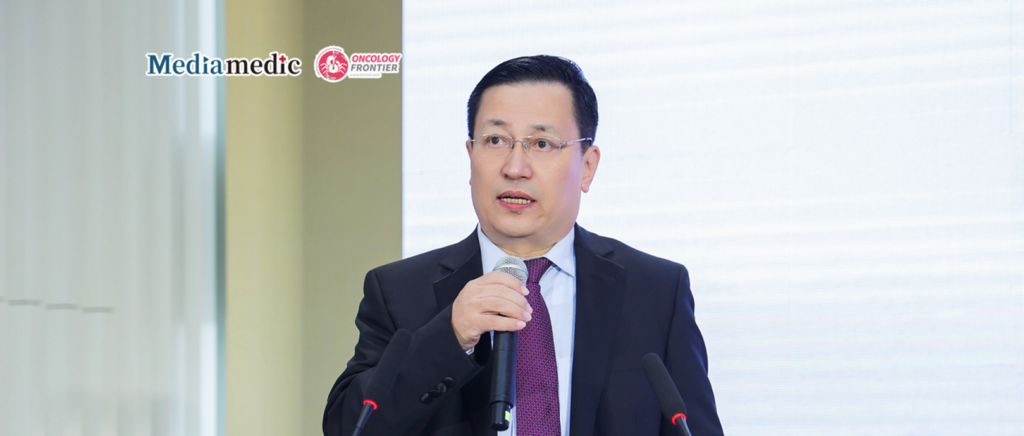
Editor’s Note:
The 2024 Chinese Congress on Holistic Integrative Oncology (CCHIO) concluded on November 17, emphasizing a multidisciplinary approach to oncology. The event featured specialized sessions on integrated rehabilitation, public education, and cancer prevention, showcasing novel perspectives and techniques for comprehensive cancer care. During the conference, Oncology Frontier had the honor of interviewing Dr. Xiuyi Zhi, Chief Expert of Thoracic Surgery at Xuanwu Hospital, Capital Medical University, and Director of the Public Education Department of the Chinese Anti-Cancer Association (CACA). Professor Zhi shared the progress in cancer education initiatives and the development of cancer prevention awareness in China.CACA’s Cancer Education Efforts and the Establishment of the Science Popularization Committee
Oncology Frontier: As the Director of the Public Education Department of CACA, could you elaborate on the organization’s key efforts in cancer education? Additionally, what inspired the establishment of the CACA Science Popularization Committee, and what are your expectations for its future?
Dr. Xiuyi Zhi:
Reflecting on the 30-year journey of cancer education under the Chinese Anti-Cancer Association, we’ve observed significant progress. This development can be summarized as a “three-stage leap.”
Thirty years ago, CACA’s Public Education Department was established with a small team of five or six people. Our primary task was to implement cancer education initiatives assigned by the National Health Commission and the China Association for Science and Technology. These efforts included thematic awareness campaigns for specific months, weeks, or days. Over two decades, we achieved initial success in promoting public awareness.
In January 2018, the CACA Cancer Prevention and Control Science Popularization Committee was founded. This expanded team of over 150 members includes representatives from various cancer committees, provincial cancer associations, and mainstream media outlets. With this growth, our initiatives have diversified significantly. In addition to regular thematic campaigns, we now organize health lecture series, expert livestreams, and other educational programs.
We’ve also collaborated with the National Health Commission and provincial health departments to establish a national certification system for health education experts. As emphasized by Academician Daiming Fan, cancer education must be professional and standardized. To this end, we’ve published multiple series of science education books, including the Cancer Prevention Science Series and Science for a Healthy China Series. Over 100 experts have contributed to these publications, and we hope more clinicians, especially young doctors, will join these efforts.
In summary, the Cancer Prevention and Control Science Popularization Committee has made significant strides over six years, now led by Professor Yantao Tian of the Chinese Academy of Medical Sciences. Our work focuses on two areas: encouraging provincial cancer associations to establish their own science committees and fostering collaboration with mainstream media and experts to create high-quality educational materials.
The establishment of the Science Popularization Committee during this CCHIO aims to mobilize doctors and media to collect patient stories and use these authentic narratives to educate the public. Real-life examples, such as the benefits of early lung cancer screening or the success of targeted therapy in advanced cases, help build trust and compliance among patients.
Progress in Lung Cancer Awareness Initiatives
Oncology Frontier: November is International Lung Cancer Awareness Month. Could you share recent advancements in lung cancer education efforts in China and the initiatives planned for this year’s awareness campaign?
Dr. Xiuyi Zhi:
International Lung Cancer Awareness Month in November is a crucial period for raising awareness. Recent years have seen significant advancements in early lung cancer screening across China. With the inclusion of lung cancer screening programs in many regions, coupled with breakthroughs in AI-assisted diagnostics and biomarker discoveries, more early-stage cases are being identified and treated promptly, significantly improving patient survival.
However, challenges remain. In clinical practice, over 95% of lung nodules detected through early screening are benign and do not require intervention. Yet, due to insufficient public education, many patients misinterpret their diagnoses, leading to unnecessary treatments and undue anxiety. This over-treatment not only wastes medical resources but also impacts patients’ quality of life.
This year’s campaign theme, “Emphasizing Early Lung Cancer Screening While Standardizing Nodule Diagnosis and Treatment,” reflects these concerns. Our initiatives include:
- Promoting standardized lung cancer screening through provincial cancer associations.
- Developing core knowledge guidelines for early diagnosis and treatment.
- Focusing on talent development, including training for healthcare professionals and media participants in delivering accessible and accurate education.
Technological advancements such as chest CT scans, genetic testing, and AI-assisted diagnosis have significantly improved access to early lung cancer screening. Our goal is to leverage these tools alongside regional medical centers and telemedicine to ensure comprehensive coverage, ultimately achieving the objective of “treating serious illnesses without leaving the county.”
Call to Action: Systematizing Cancer Education Efforts
This year marks the 40th anniversaries of both the Chinese Anti-Cancer Association and the China Cancer Foundation. I urge science popularization committees across disciplines to form unified coalitions, collaborate with media, and systematize educational efforts. By doing so, we can enhance public knowledge, trust, and action in cancer prevention and control, ultimately fostering a healthier society.

